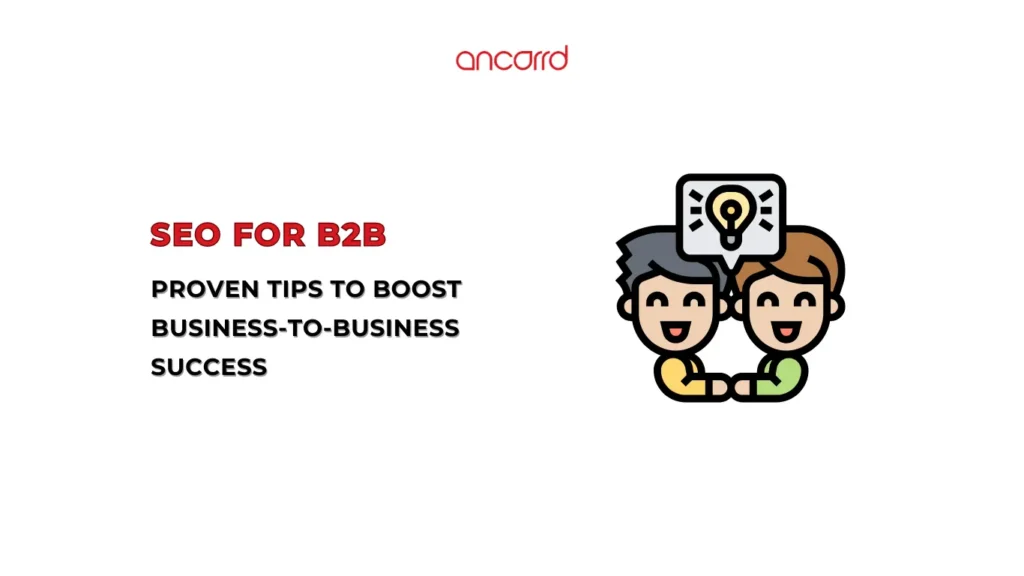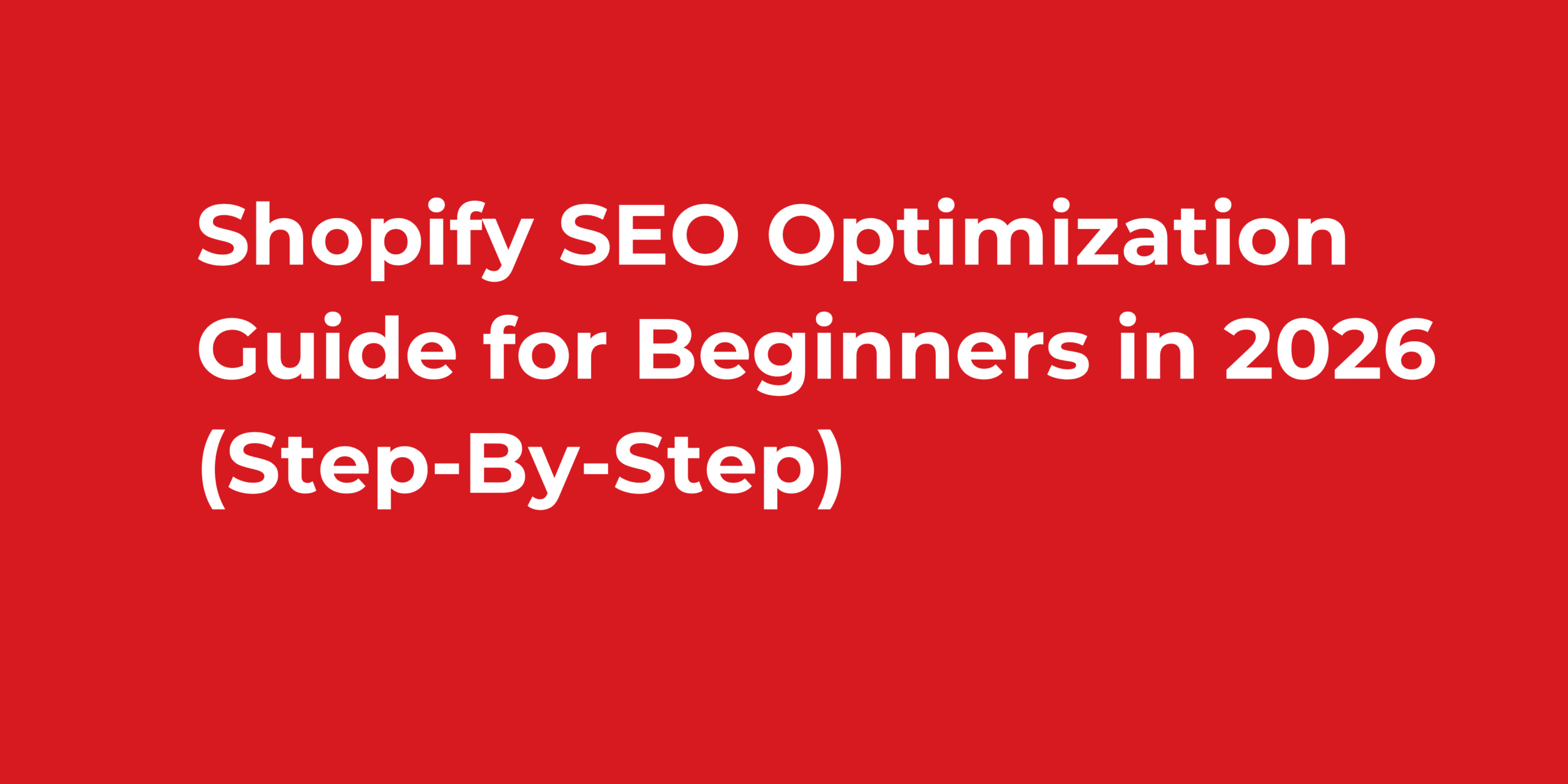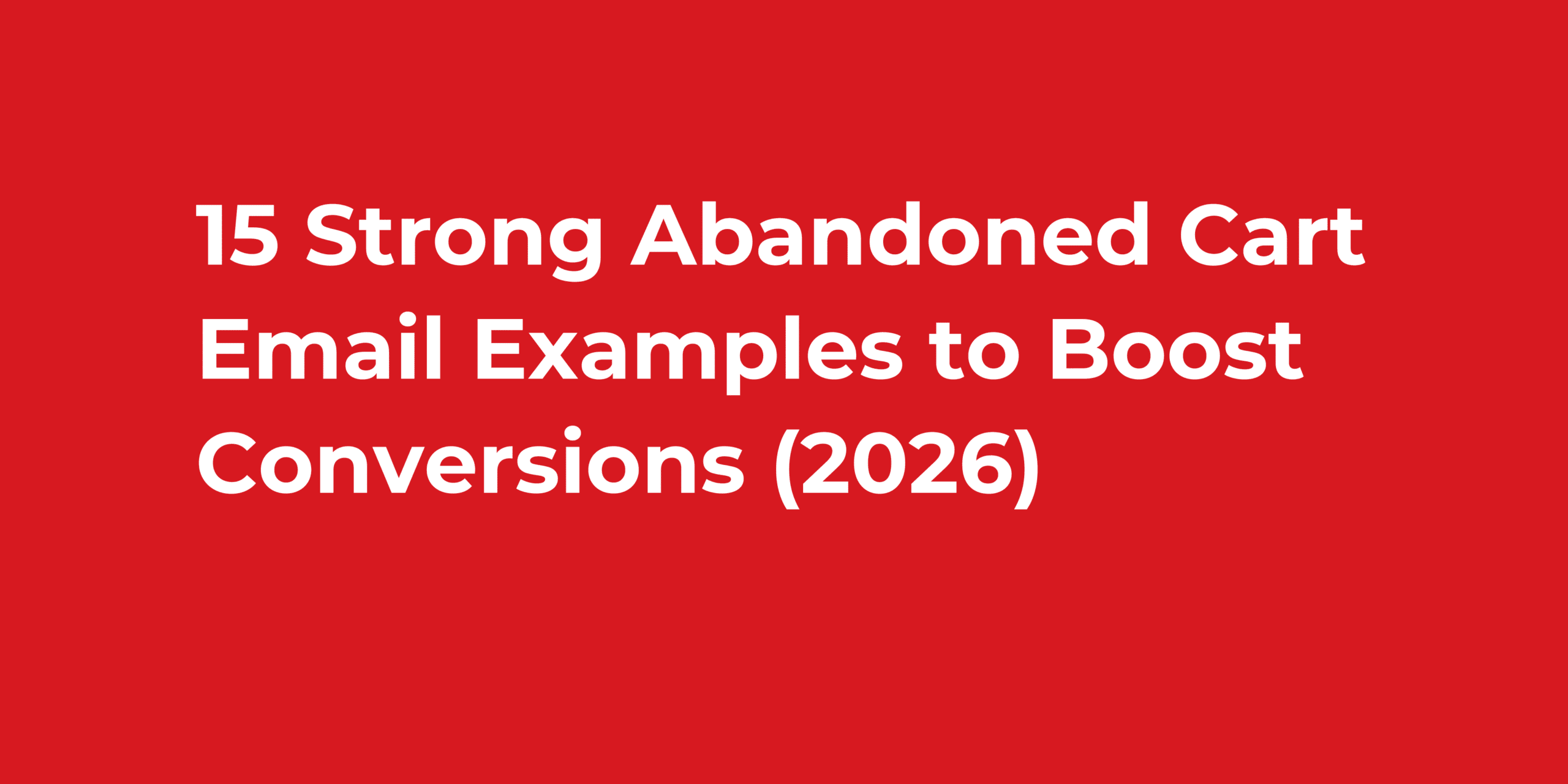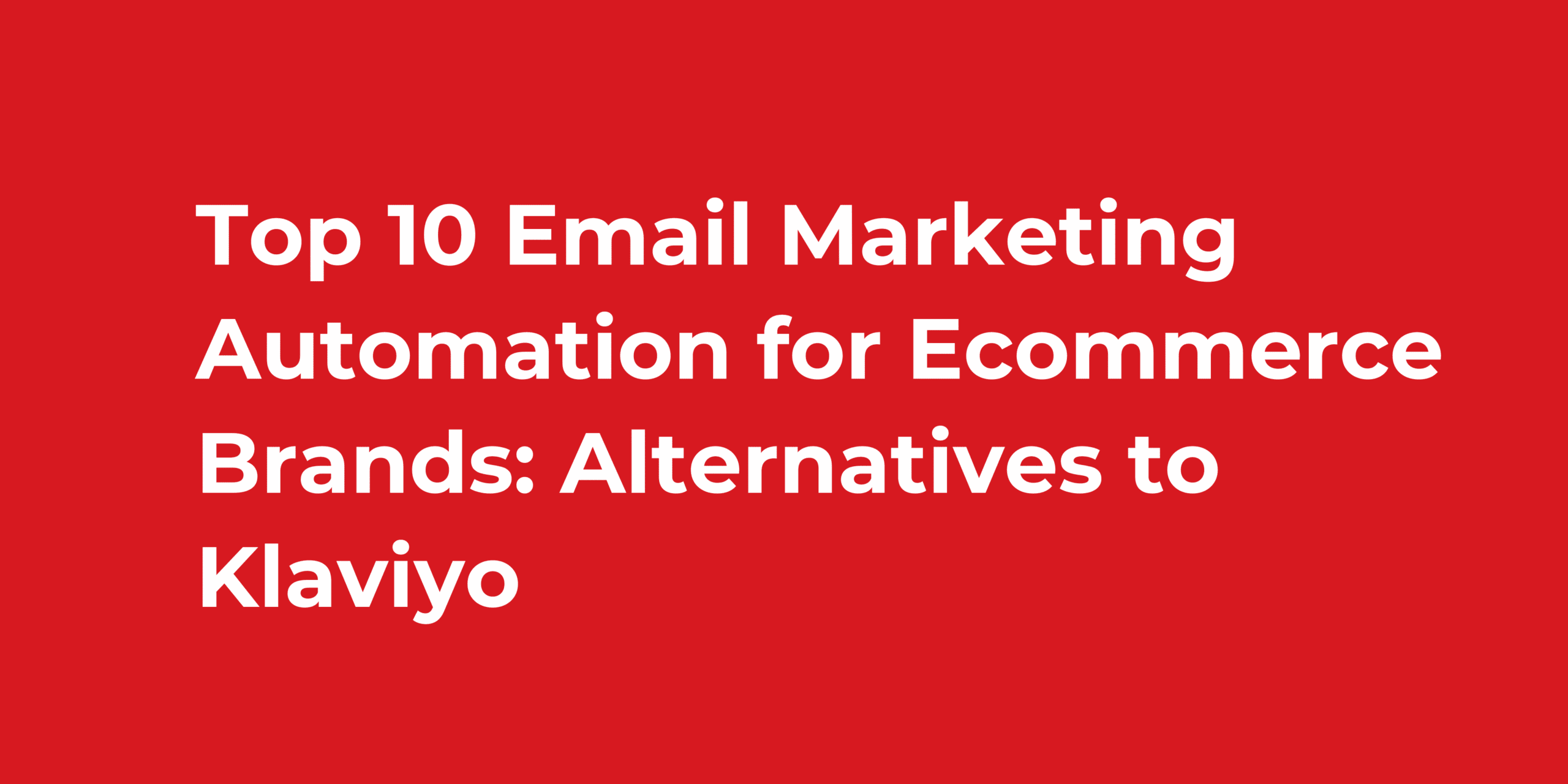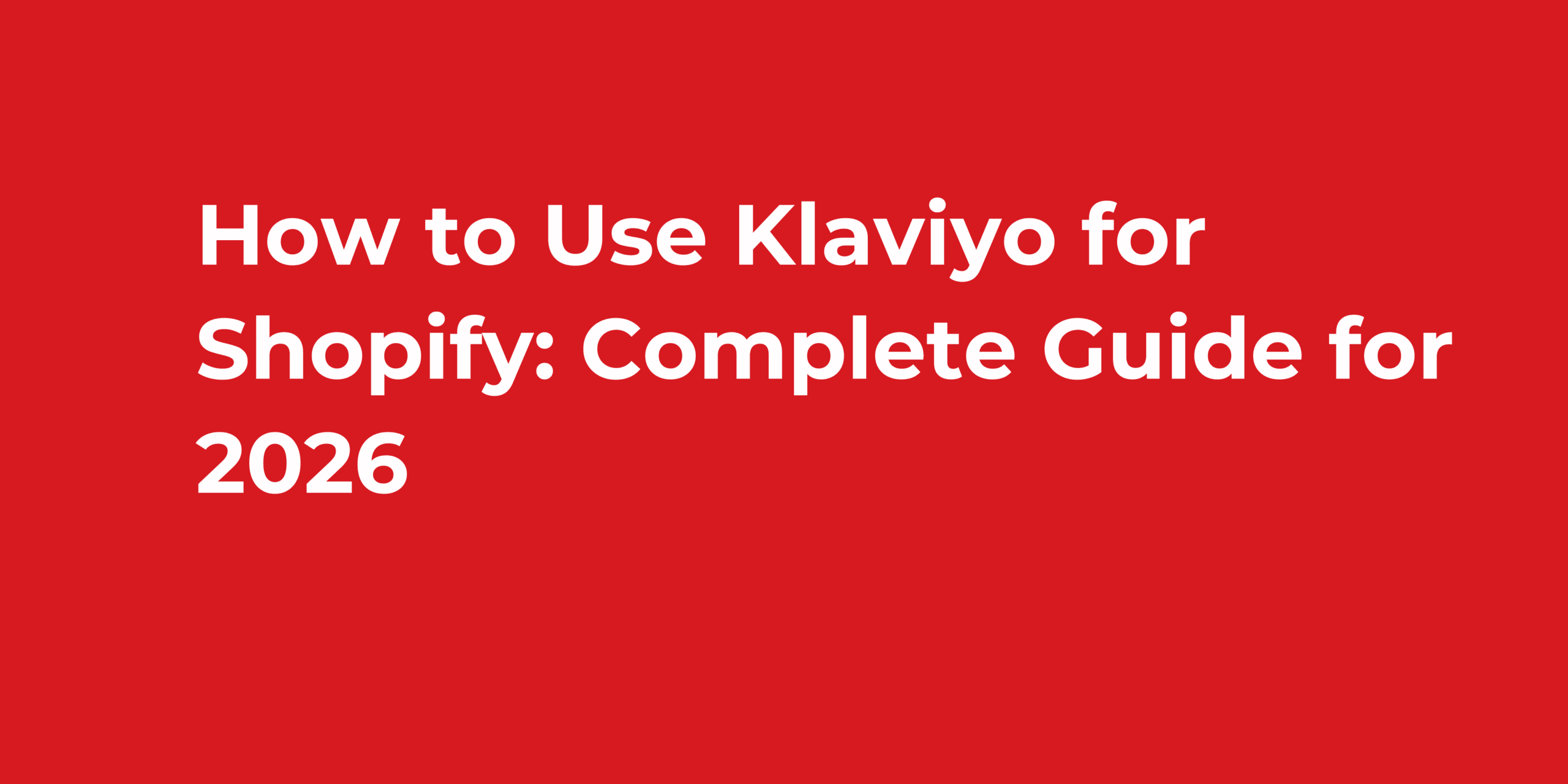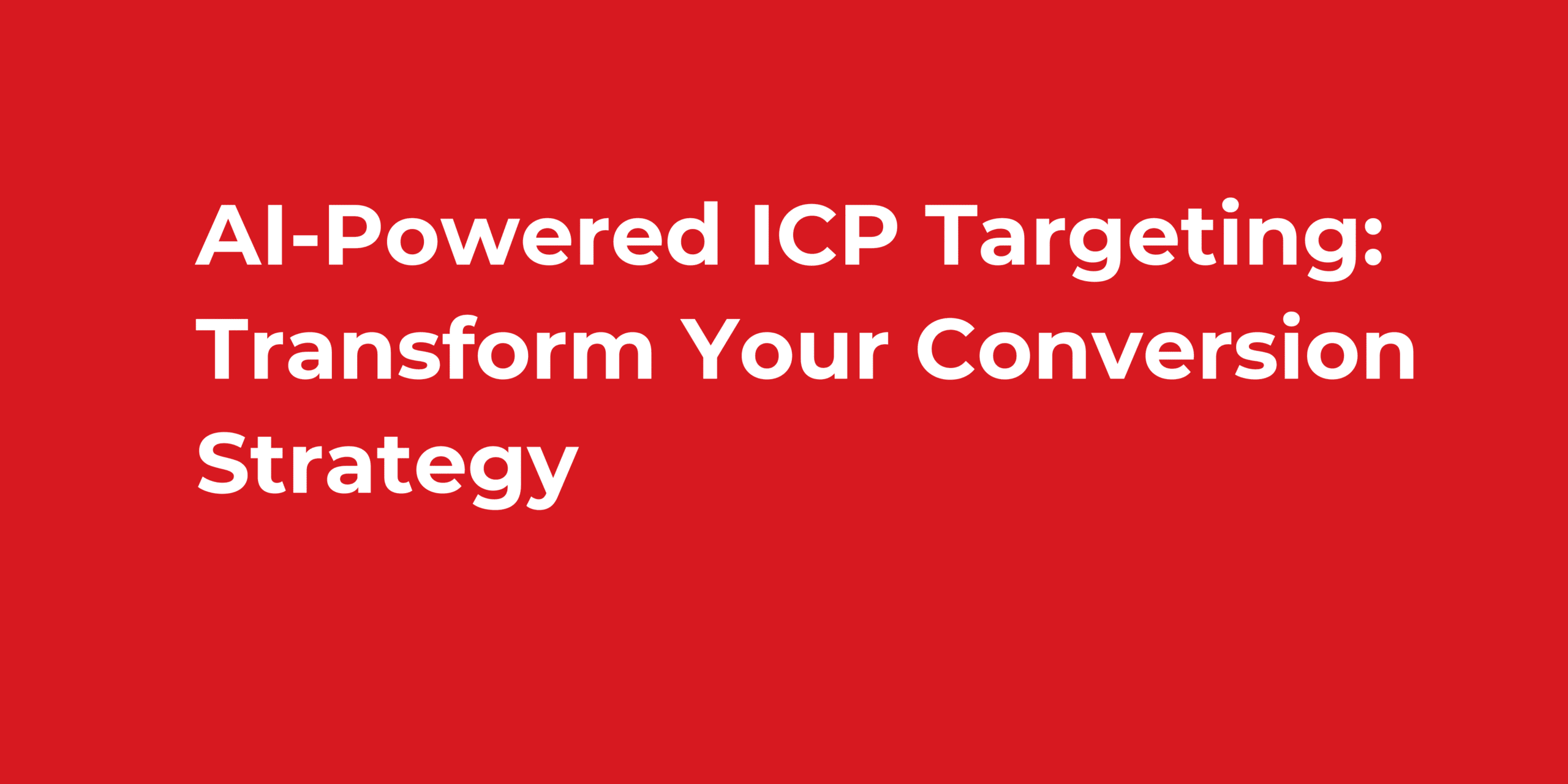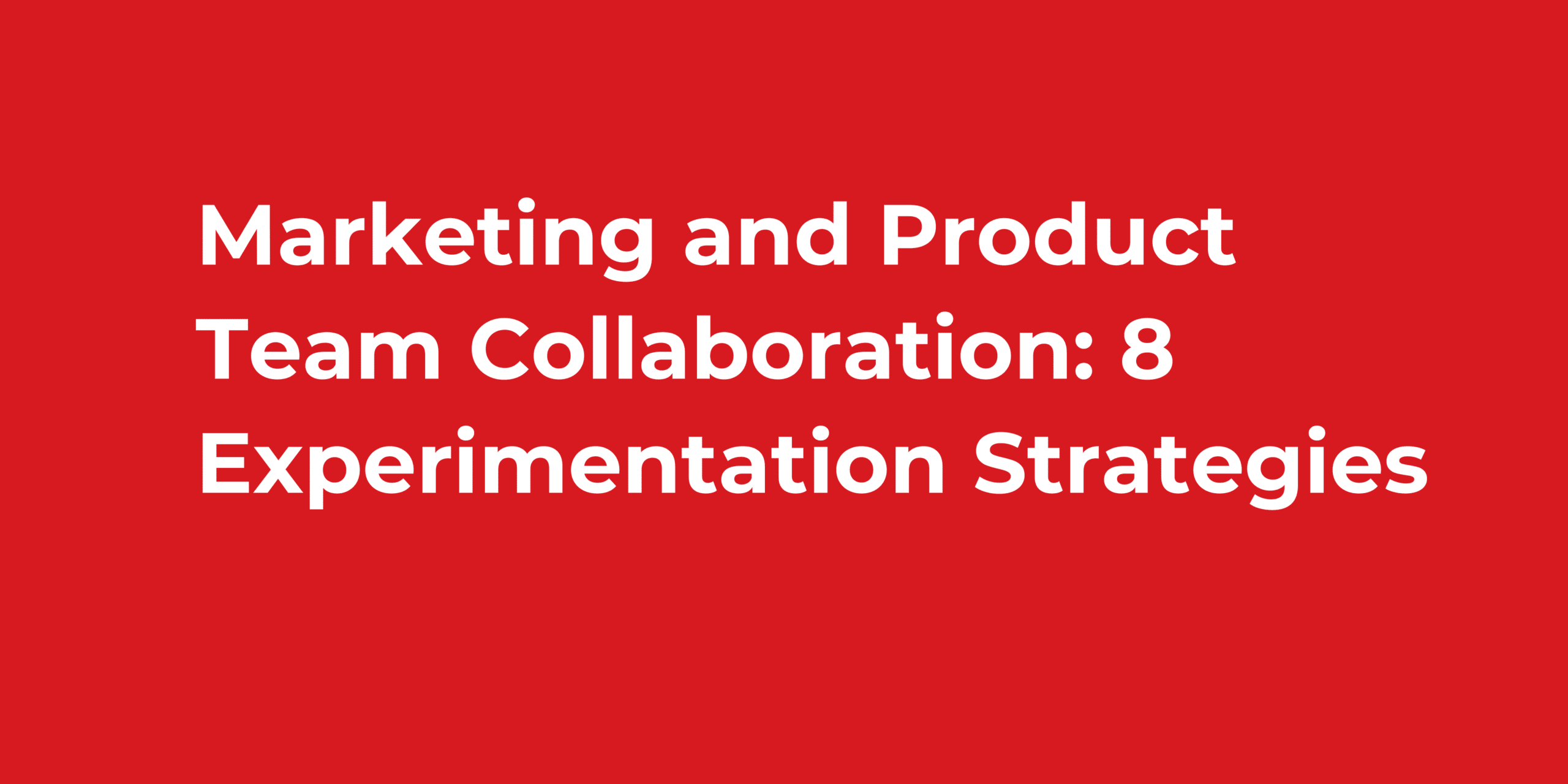27% of the B2B purchase journeys begin with online searches. That’s why focusing on SEO for your e-commerce business is very important. Your e-commerce journey highly depends upon search engines, and if you implement a B2B relationship, SEO is the key to success. SEO for B2B helps businesses to increase their visibility, attract more leads, and attract customers.
SEO, also known as search engine optimization, is essential for all e-commerce businesses. It is a process through which you align your website and content with the requirements of a particular search engine.
Through SEO, your website ranks on the top pages of search engines, hence increasing brand awareness. B2B companies are no exception, and they also require strong SEO content for B2B lead generation. This blog focuses on proven tips to help your e-commerce business establish a perfect SEO for B2B strategy to boost your business.
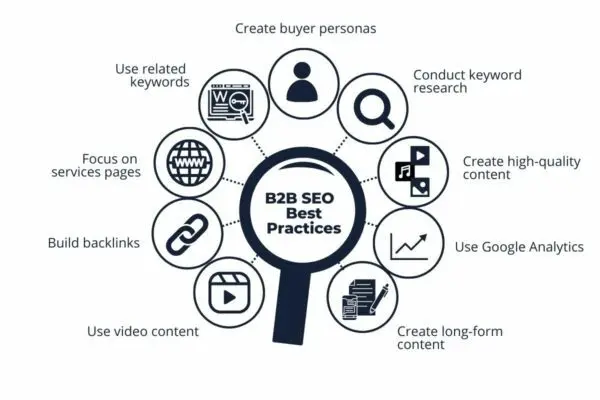
What is SEO for B2B? Why is it so important?
SEO for B2B is a specially designed practice that helps businesses gain an advantage over search engines in attracting other businesses as customers. It’s different from the general view that one would do B2C SEO to attract the individual consumer. Their buying process would be much longer and entirely dependent on research.
B2B SEO is important mainly because it allows organizations to attract quality organic leads through the results of relevant searches. Most B2B buyers use online research to get the best deals; thus, a good SEO presence significantly impacts a business’s presence and B2B lead generation.
Here are some strategies for successful B2B SEO in 2024:
- Do keyword research.
- Use high-quality, authoritative content
- Building high-quality backlinks
- Optimizing On-Page SEO
- Using technical SEO
- Leveraging local SEO
- Measuring and analysing SEO
Thus, successful B2B content marketing trends using SEO can establish credibility while driving targeted traffic, connecting the business with the desired clients at the right moment.
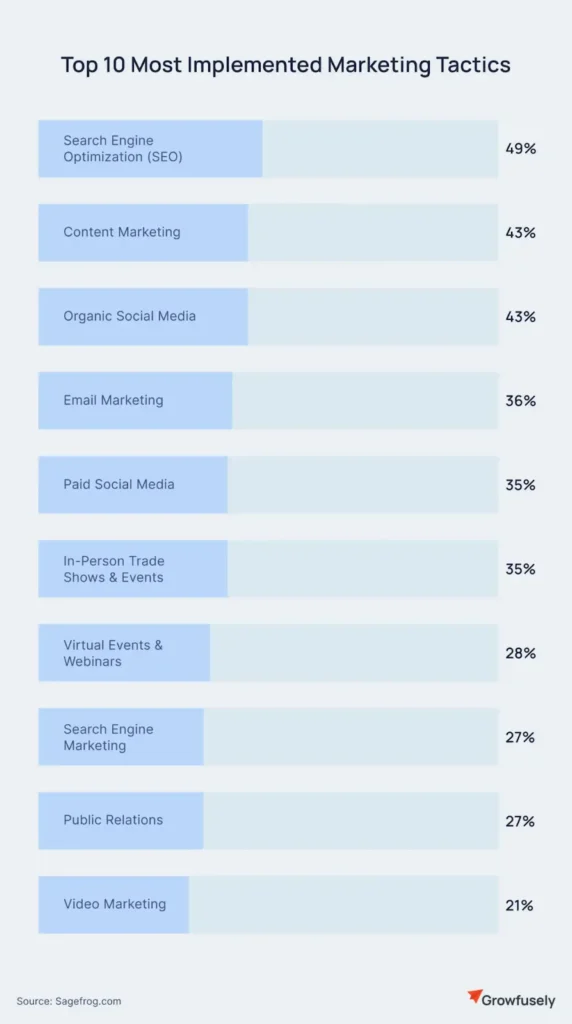
Understanding B2B buyer behavior and search intent
As an e-commerce business runner, you can tell that when a business searches for another business on search engines, they are not looking for a one-time product or service. Those businesses are looking for another business that would help their business run through their product or services. They make high-stakes decisions, and several stakeholders are involved in this process. If you use SEO properly, you can smooth down your B2B sales funnel.
B2B vs B2C search intent
SEO for B2B requires more in-depth research than that for B2C. People who search for other businesses want to know about product details, case studies, and comparison guides. They are also looking for how a solution will impact their business.
They rely on authoritative content from trusted sources, such as whitepapers and industry reports, to confirm a product’s or service’s credibility. This typically tends to lengthen the decision-making cycle since purchases are rarely impulsive and will always involve more than one stakeholder.
In an interview with First Page Sage, Evan Bailyn said,
“SEO is also one of the best sales channels in the B2B world because it’s a place where sophisticated decision-makers go to do their own research and find solutions”
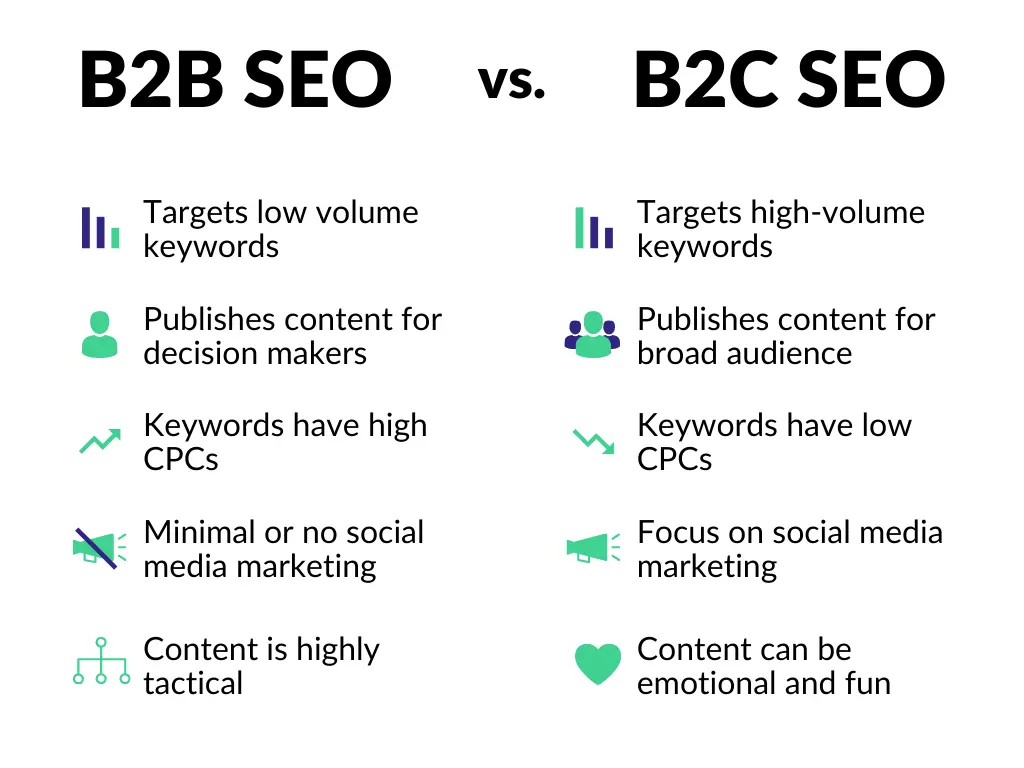
Understand B2B search intent
Understanding B2B search intent is very important. Here are four types of B2B search intents:
- Informational: Buyers want to know something about a topic (for example, “how to boost team productivity”).
- Navigation: They are looking for a particular website or organization, maybe “Ancorrd.”
- Commercial: Buyers compare options and evaluate specific solutions, looking for terms like “best CRM for small business.
- Transactional: The other category is transactional, meaning it includes buyers’ lists prepared to buy, requests for demos, etc.
In the case of B2B, informational and commercial intent are very important because buyers need to educate themselves in detail before deciding. Such content fulfills the information requirements and attracts the target buyers to engage with your business.
Importance of keyword research in SEO for B2B
Keyword research is essential in SEO for B2B because it ensures that your content uses the right terms that potential buyers use. A smart way of approaching this is by focusing on long-tail keywords and industry-specific phrases.
For instance, B2B long-tail keywords are specific, detailed terms used by B2B buyers to find an exact solution to their needs. These words might be as specific as “best project management software for construction” or “CRM for small B2B businesses. ” If your content has these keywords and a user searches for these phrases, tada! Your content is on the top of the Google page. This is an integral part of the B2B content marketing trends.
Competitor research can also be helpful in keyword research. A competitor’s rank for specific keywords could give you clues on what already works in your industry.
These tools can be helpful for SEO for B2B keyword research: Ahrefs, SEMrush, and Google Keyword Planner. Each one offers several handy features, including keyword difficulty scores to give you an idea of how tough it will be to rank for a term and search volume to give you an idea of how many people are searching for that term combined.
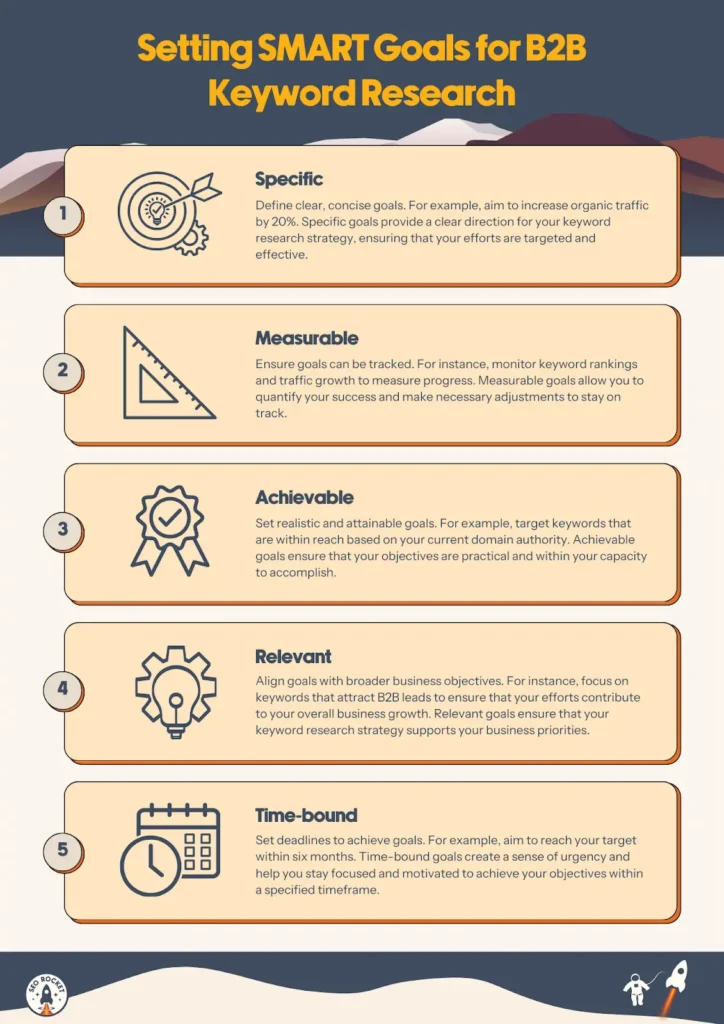
Creating high-quality, authoritative content
To be successful at SEO for B2B, create high-quality, educational content that answers your audience’s queries. B2B buyers want deep, authoritative resources like whitepapers and case studies that offer data-based insights and real-life examples. Blog posts and guides are also useful for SEO, answering key questions and offering practical advice.
High-quality content contains SEO factors that help it rank and attract its target customers. The B2B sales funnel plays an important part in enhancing conversion rates. Hence, all these detailed resources will provide credibility to your users.
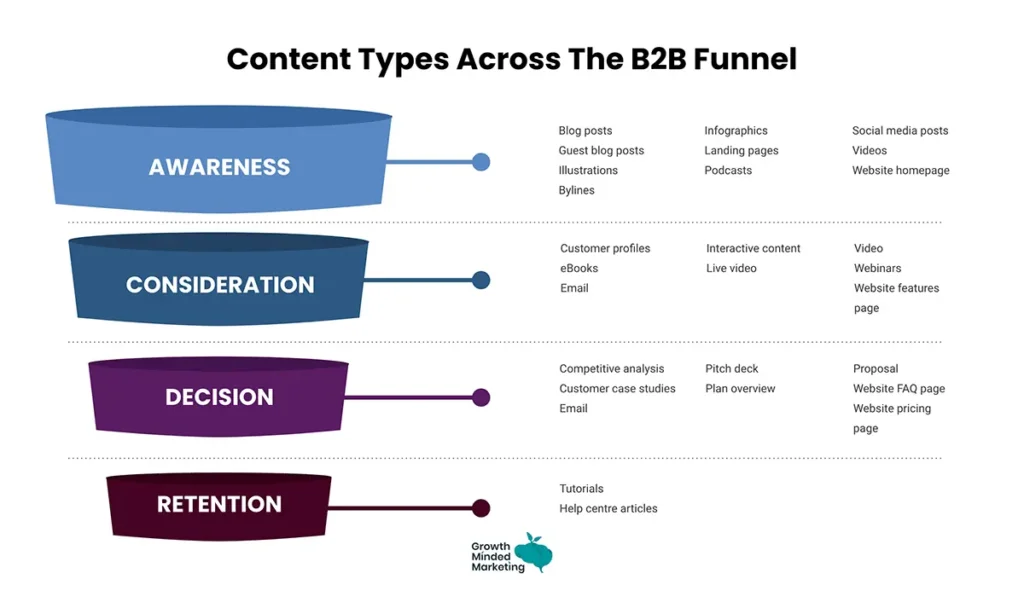
Building high-quality backlinks in B2B
Backlinks are a way to connect with other websites that have a higher domain authority. When different authoritative websites link to your website, Google thinks that your website is also credible. SEO for B2B can increase credibility and visibility.
A perfect way to do backlinking is guest posting. From its name, you become a guest at someone else’s website and publish content there according to your niche that connects with your e-commerce website. In this way, you express your expertise on other websites. It turns into an ongoing opportunity that develops your link profile over time. This is one of the best B2B content marketing trends.
Another effective way to get authoritative backlinks is to publish client case studies and testimonials. For instance, if you helped a client solve something important for them, then you can create a detailed case study with their approval. Many clients will post the case study on their site, which creates a backlink to your site.
Other SEO for B2B backlinks opportunities arise from participating in industry events, podcasts, and expert roundups. When you participate in an event or a podcast, those event management teams will publish your brand on their websites because you were their guests.
Optimizing on-page elements for SEO for B2B
66 % of B2B buyers use search results to decide their next B2B purchase. Your website should be optimized at its best, and on-page SEO does it all. On-page SEO is the most important strategy for B2B SEO. If your website is not optimized correctly, how can search engines crawl through it properly? It will damage your website’s authority, making it harder to rank on Google pages. Effective B2B SEO involves optimizing all elements on the page to make search engines, and potential clients understand your content.
Relevant and clear meta titles and descriptions are part of that process. Titles and descriptions should be consistent with the intent of B2B searchers. Also, you should use visible, professional language to describe the value or insights provided on the page. This helps to increase click-through rates as users know exactly what they can get after visiting your website. This is a powerful tool to optimize the B2B sales funnel.
The published content on your website should be appropriately optimized. It plays a major role in B2B lead generation. Apply headings, bullet points, and summaries. This will make understanding easier for the reader. Such structured content makes pages easy to use and makes it easy for the search engine to pick the important points for itself, thus boosting SEO.
Schema markup can also be added to the B2B site. Since schema markup adds structured data to your site, search engines can use it to bring up rich snippets in their search results. Schema can show additional information in search results, such as an event’s dates, ratings, or even product specifications. This enhances visibility and, at the same time, gives users confidence by providing key details right on the search results page.
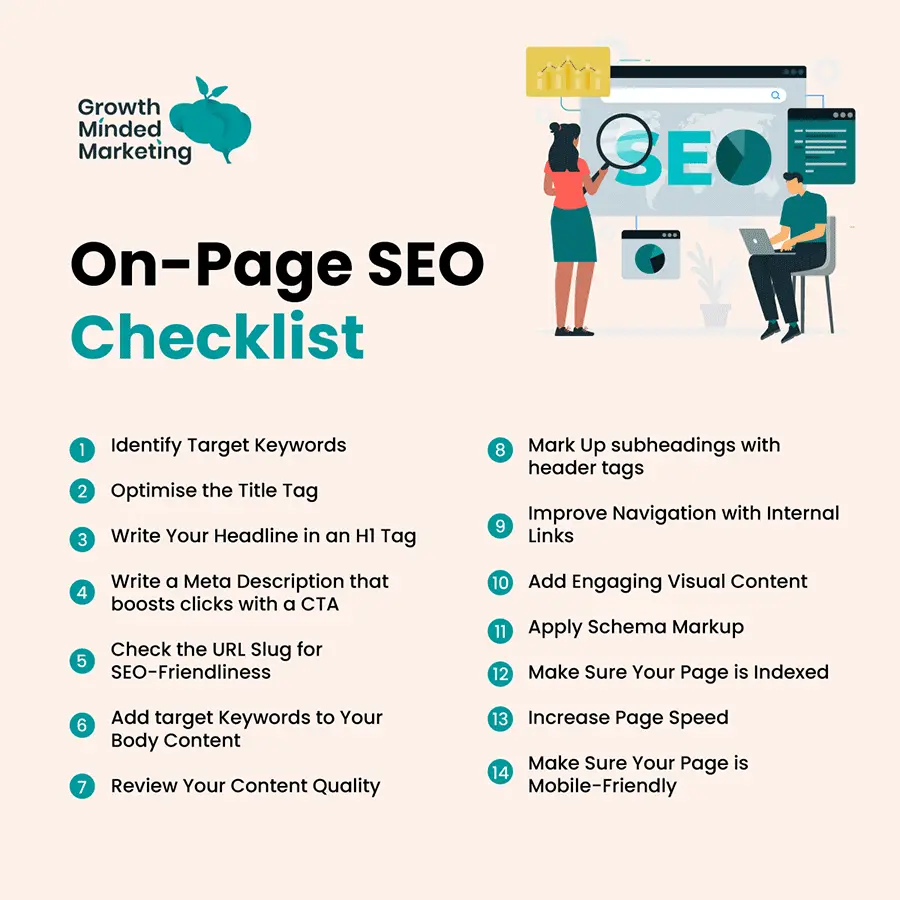
Technical SEO for B2B
Technical SEO is also an important part of SEO for B2B relations. It allows people to find and access your website quickly and easily. It includes optimizing site speed, fixing broken links, and using HTTPS.
A one-second delay in page load time leads to 11% fewer page views. Site speed and mobile usability are more important as most busy professionals research on the go. A fast-loading, mobile-friendly website doesn’t only give a silky-smooth user experience, but it also ranks better in search engines.
SEO for B2B also demands proper site security. Using HTTPS shows that your site is secure and safe to work with when handling sensitive business information. This encryption connection prevents user data from being intercepted and gives visitors confidence. This is also an important factor in B2B lead generation.
Fixing broken links is also extremely important. Broken links frustrate visitors, which affects the B2B sales funnel. In addition, they make it difficult for search engines to crawl your website.
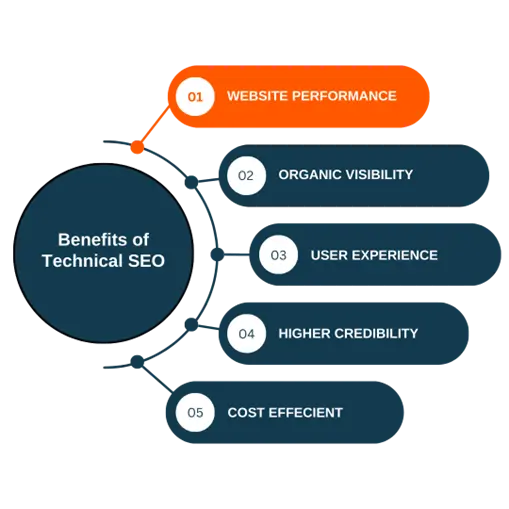
Local SEO for B2B businesses
Local SEO is very precious for business-to-business companies. It allows you to focus on specific territories and regions. Many B2B businesses offer services to clients in specific geographic locations. Local SEO for B2B can help you get more targeted traffic to attract businesses interested in your product or services in a particular region. It increases the chances of interacting with local clients.
B2B local SEO also includes targeted locality keywords. Adding the business location, a region, or well-known industry hubs to keywords enables companies to better target their local audience. A marketing firm located in Seattle would probably use keywords like “Seattle B2B marketing firm” and “digital marketing Seattle.” This approach makes it easier for local businesses to find the firms’ services and increases relevant traffic and possible local clients.
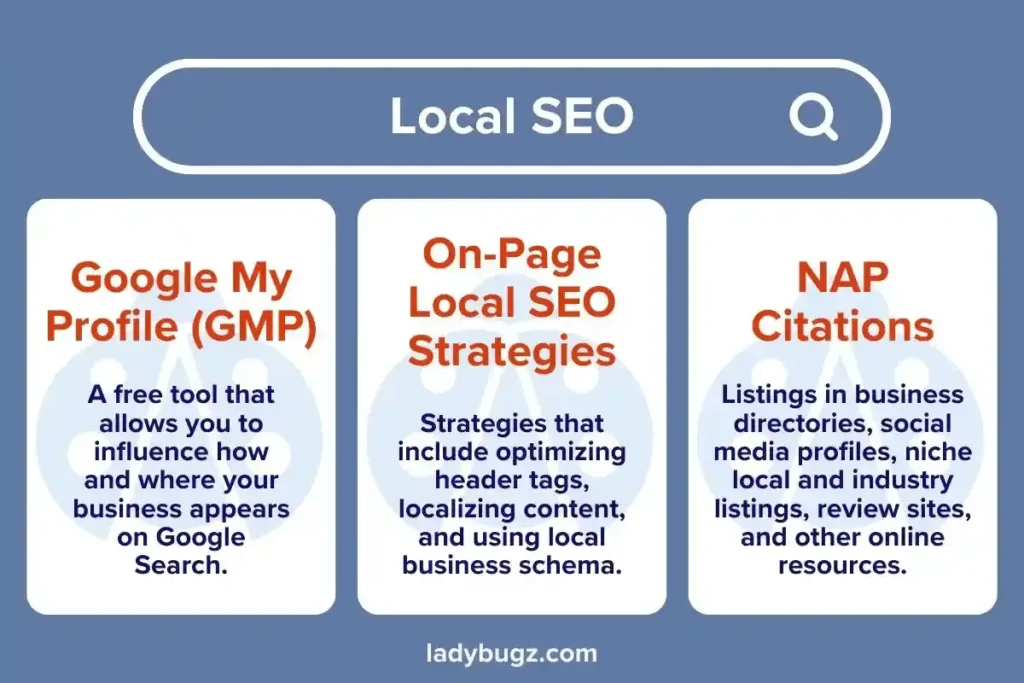
Measuring and analyzing SEO performance
Monitoring and measuring SEO performance is important in understanding B2B SEO success. This includes setting up analytics tools like Google Analytics and Google Search Console. They provide valuable information regarding users’ activities on the website, such as how they arrived on your pages and even how they behave. Analytics will also provide keyword performance so you can clearly see which keywords are bringing the most traffic and leading to conversions.
Conclusion
The above blog focused on different SEO for B2B strategies. From using targeted keywords to optimizing your website’s SEO, all these factors help increase your brand’s visibility and awareness. When search engines give credibility to your websites, users will automatically be attracted to them, increasing organic traffic and, ultimately, ROI.
SEO is very important for e-commerce. B2B relations last a long time and benefit your business, so you must focus on SEO, as it helps a lot in B2B lead generation.
FAQs
-
What is a B2B SEO strategy?
SEO for B2B is a specially designed practice that helps businesses gain an advantage over search engines in attracting other businesses as customers. It’s different from the general view that one would do B2C SEO to attract the individual consumer. Their buying process would be much longer and entirely dependent on research.
-
How to create a winning B2B SEO strategy in 2024?
Here are some strategies for successful B2B SEO in 2024:
– Do keyword research.
– Use high-quality, authoritative content
– Building high-quality backlinks
– Optimizing On-Page SEO
– Using technical SEO
– Leveraging local SEO
– Measuring and analyzing SEO -
How do you increase SEO traffic?
On-page SEO is the most important strategy for B2B SEO. If your website is not optimized properly, how can search engines crawl through it properly? This will damage your website’s authority, making it more difficult to rank on Google pages. Effective B2B SEO involves optimizing all elements on the page to make search engines, and potential clients understand your content.
-
How do you get backlinks in SEO?
An effective way to get authoritative backlinks is to publish client case studies and testimonials. For instance, if you helped a client solve something important, you can create a detailed case study with their approval. Many clients will post the case study on their site, which creates a backlink to your site.
-
What is technical SEO?
Technical SEO is also an important part of SEO for B2B relations. It allows people to find and access your website quickly and easily. It includes optimizing site speed, fixing broken links, and using HTTPS.
